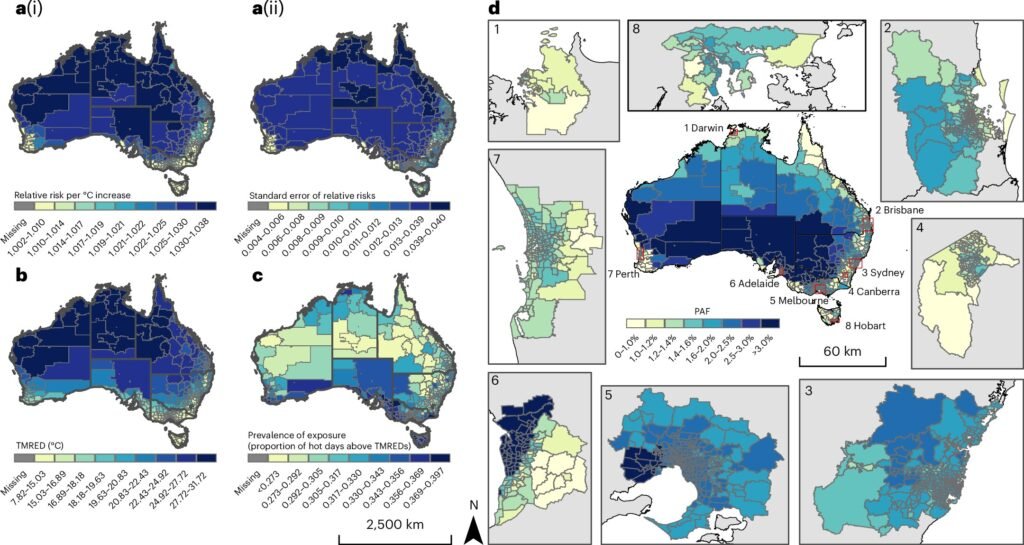A recent study from the University of Adelaide has shed light on the potential impact of rising temperatures on mental and behavioral disorders (MBD) in Australia. The research suggests that by 2050, the burden of MBD could increase by almost 50% due to the effects of climate change.
Published in Nature Climate Change, the study reveals that high temperatures have already contributed to a significant loss of disability-adjusted life years (DALYs) in Australia. Young Australians aged 15 to 44 appear to be the most affected demographic, with the majority of losses attributed to poor mental health.
Professor Peng Bi, the lead author of the study, emphasizes the urgent need for action to protect mental health as the climate continues to warm. MBDs encompass a wide range of symptoms related to distress or impairment in emotional regulation, cognition, or behavior, including anxiety, depression, bipolar disorder, schizophrenia, and substance use disorders.
The study, based on data from the Australian Burden of Disease database, indicates that regions with warmer climates face higher risks. For example, the Northern Territory has the highest predicted relative risk and average threshold temperature, while South Australia and Victoria have the highest proportion of burden attributable to high temperatures.
The researchers stress the importance of policymakers implementing targeted public health interventions to address the emerging mental health impacts of climate change. Factors such as income, access to healthcare, and local conditions play a role in how heat affects mental health, with some areas experiencing more significant challenges than others.
Dr. Jingwen Liu, the first author of the study, highlights the need for immediate action, including the development of heat-health action plans and localized solutions such as community programs and green spaces to support vulnerable populations. The goal is to ensure that those most at risk receive the necessary care during periods of extreme heat.
In conclusion, the study underscores the critical role of proactive measures in protecting mental health as temperatures continue to rise. By implementing people-centered strategies and building resilient communities, policymakers can help mitigate the future impact of climate change on mental health. The findings serve as a call to action for addressing this pressing issue to create a healthier and more sustainable future for all Australians.


